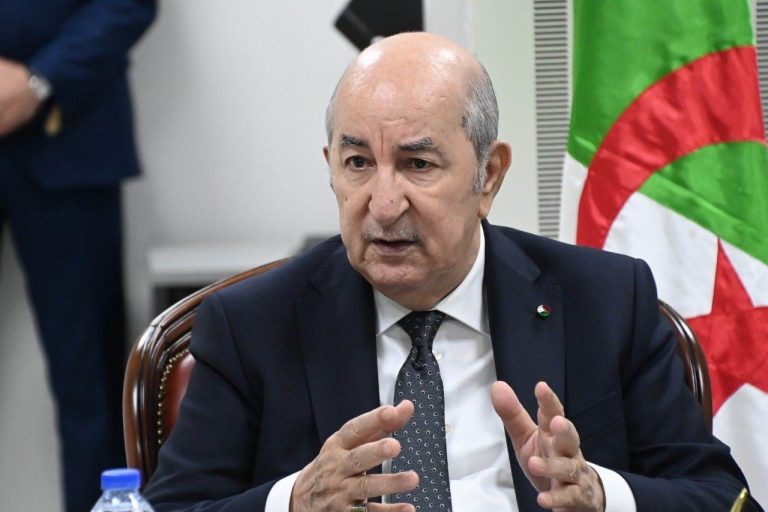
In a recent speech to the leadership of the National People’s Army, Algerian President Abdelmadjid Tebboune unveiled a long-guarded secret: the country narrowly avoided a potential Israeli airstrike in November 1988, aimed at the Club des Pins in Algiers.
This disclosure, thirty-seven years after the events, sheds new light on Algeria’s military preparedness and its commitment to defending the Palestinian cause during a time of heightened geopolitical tension.
On November 15, 1988, the Palestinian National Council gathered at the Palais des Nations, located in the western Algiers suburb of Club des Pins, to declare the establishment of the State of Palestine.
Yasser Arafat, Chairman of the Palestine Liberation Organization (PLO), read out the historic proclamation, written by Palestinian poet Mahmoud Darwish.
The declaration, however, came at a time of significant risk, particularly following Israel’s Operation Wooden Leg, a devastating airstrike against the PLO headquarters in Hammam Chott, Tunisia, in 1985. This attack demonstrated Israel’s ability to strike deep into North Africa, nearly 3,000 kilometers from its borders.
Tebboune, addressing senior military officials, recalled the grave threats Algeria faced at the time, including the possibility of an Israeli bombing campaign aimed at the Club des Pins.
“You are aware of the threats that were being plotted against Algeria, including the bombing of the Club des Pins,” Tebboune stated, shedding light on the high stakes of that fateful period.
On November 10, 1988, just days before the Palestinian declaration, Algeria’s air defense radar systems detected a formation of suspicious aircraft approaching from the eastern Mediterranean.
Given the heightened threat from Israel following its attack on Tunisia, Algeria had already implemented robust air defense measures.
A 20-kilometer no-fly zone was established around the Club des Pins, supported by a series of defensive tactics, including air patrols by MiG-25 Foxbats, MiG-23s, and SA-6 surface-to-air missile systems.
When the unidentified aircraft approached, Algeria scrambled multiple fighter jets, ultimately deploying a total of eight aircraft.
The show of force, coupled with the presence of advanced defense systems, deterred any intrusion, and the foreign planes retreated without entering Algerian airspace.
While President Tebboune did not explain the reasons behind the decades-long secrecy, experts suggest that Algeria’s reticence may have been motivated by the need to maintain diplomatic balance in the volatile political landscape of the Cold War and its aftermath.
“The only interest we had in that situation was our conscience,” Tebboune emphasized, reaffirming Algeria’s unwavering support for the Palestinian cause. “For us, the solution is a Palestinian state with Al-Quds as its capital. Our position has not changed and will not change.”
This revelation serves not only as a reminder of Algeria’s historical commitment to Palestine but also highlights the strategic significance of military deterrence in shaping the Mediterranean’s balance of power at the close of the Cold War.
It underscores how, even in the face of technologically superior adversaries, Algeria was able to protect its sovereignty and contribute to the wider Arab and African efforts to support Palestinian self-determination.
In the context of modern geopolitical dynamics, Tebboune’s comments send a clear message: Algeria’s stance on Palestine remains firm, and its military strength continues to be a key element in preserving its foreign policy objectives.
This new insight into Algeria’s military readiness in 1988 serves as both a historical reflection and a reaffirmation of the country’s enduring commitment to the Palestinian cause.



